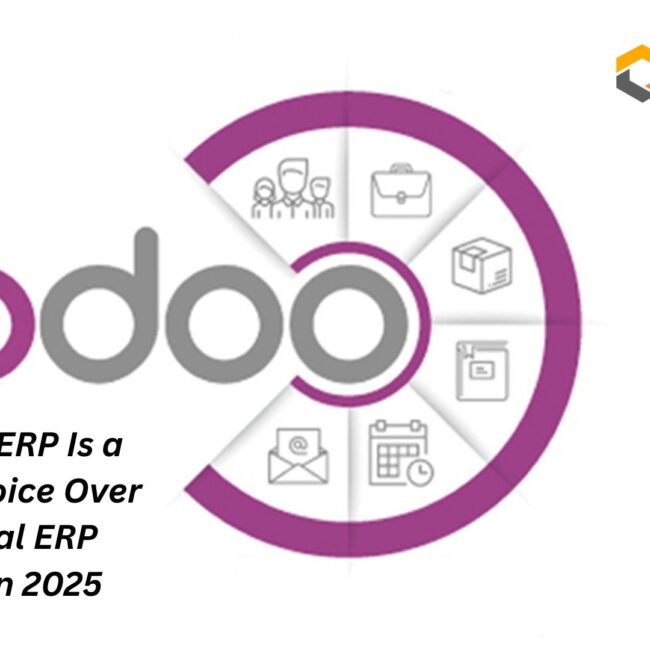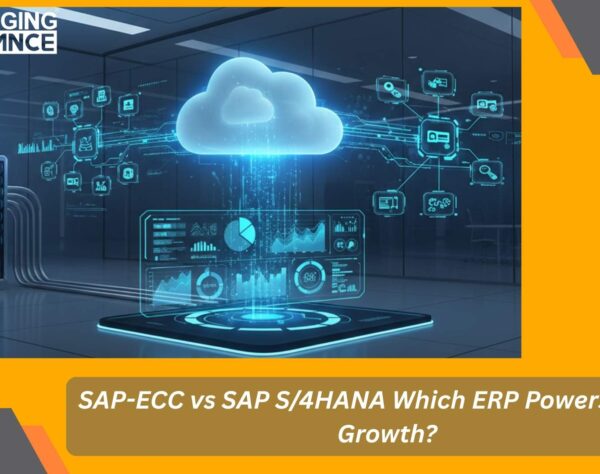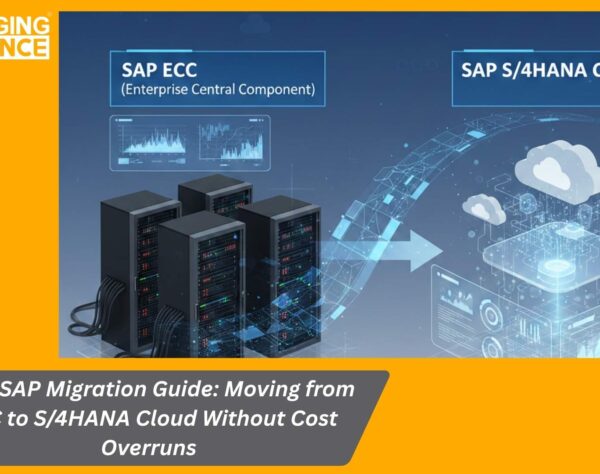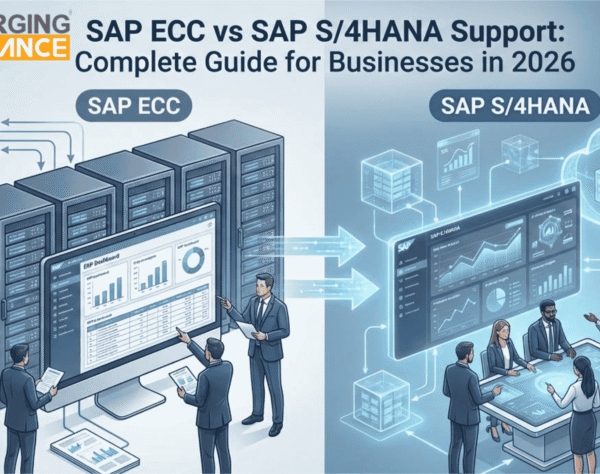
Top 10 SAP Implementation Benefits for Businesses in 2025
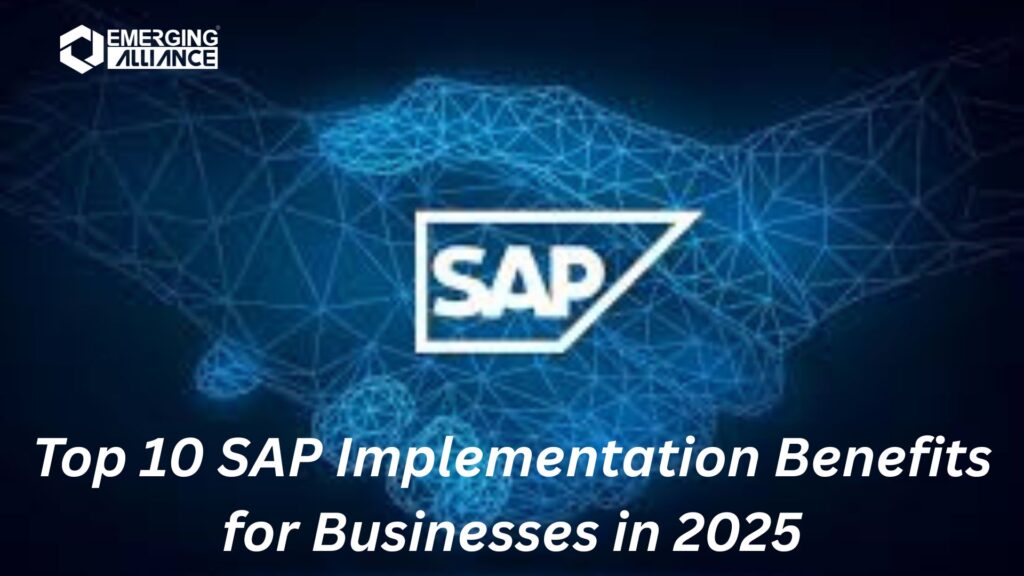
Why Implementing SAP is a Game-Changer for Modern Businesses
In today’s digital-first economy, companies are turning to intelligent ERP systems like SAP to stay competitive, efficient, and future-ready. Whether you’re a growing SME or a large enterprise, implementing SAP can transform how you manage operations, data, and customer experience.
Let’s explore the top 10 business benefits of implementing SAP ERP—and why it’s the smart move for long-term growth and profitability.
💡 1. Centralized Business Data for Real-Time Visibility
Say goodbye to scattered spreadsheets and disconnected systems. SAP provides a single, integrated platform where all your departments—from finance to inventory—work with real-time, accurate data. This improves collaboration, transparency, and decision-making across the board.
⚙️ 2. Improved Efficiency Through Automation
SAP automates time-consuming manual processes like billing, procurement, and reporting. This reduces errors, saves time, and boosts productivity—freeing up your team to focus on innovation and strategy.
📈 3. Scalable Solution That Grows With Your Business
Whether you’re expanding to new markets or adding product lines, SAP ERP scales with your needs. Add new users, modules, or locations without disrupting existing operations.
💰 4. Enhanced Financial Accuracy & Compliance
SAP enables real-time financial reporting and automated compliance checks. Businesses gain more control over cash flow, budgeting, and audits, ensuring they meet local and international regulations with ease.
🤝 5. Better Customer Experience & Engagement
With access to customer histories, purchase patterns, and service requests, your team can deliver personalized support and timely responses—boosting customer loyalty and satisfaction.
🚛 6. Streamlined Supply Chain & Inventory Management
SAP tracks inventory levels, supplier performance, and delivery timelines in real-time. It optimizes procurement, reduces stockouts, and improves demand planning.
📊 7. Smart Decision-Making With Built-In Analytics
SAP’s dashboards and AI-powered analytics give you actionable insights into performance, trends, and risks—helping leaders make confident, data-driven decisions.
✅ 8. Stronger Regulatory Compliance
Industries like pharma, manufacturing, and finance face strict regulations. SAP helps enforce compliance through audit trails, validation protocols, and automated alerts.
🧑🤝🧑 9. Improved Team Collaboration
When all departments use the same data and system, collaboration becomes seamless. SAP encourages alignment between finance, operations, sales, and HR—driving faster execution.
🚀 10. Competitive Edge Through Innovation
By adopting SAP latest technologies—like AI, machine learning, and IoT—your business becomes more agile, resilient, and innovative in a fast-changing market.
🌐 Why Businesses in 2025 Need SAP ERP More Than Ever
Today’s market demands speed, precision, and data-backed decisions. With SAP ERP, businesses gain the agility to pivot, the insights to grow, and the tools to lead. From finance to factory floor—SAP transforms every aspect of operations.
🔎 Frequently Asked Questions (FAQs)
1. What is the biggest benefit of implementing SAP ERP?
The biggest benefit is centralized, real-time data visibility across all departments, enabling faster, smarter decisions.
2. Is SAP ERP suitable for small and mid-sized companies?
Yes, SAP Business One and SAP S/4HANA Cloud are designed to scale from SMEs to large enterprises.
3. How does SAP improve productivity?
It automates manual processes, streamlines workflows, and reduces human errors.
4. Can SAP help with regulatory compliance?
Absolutely. SAP includes built-in tools for compliance tracking, document control, and audit readiness.
5. How long does SAP implementation take?
Implementation can take 2 to 6 months depending on business size, complexity, and customization needs.
6. What makes SAP better than generic ERP software?
SAP offers industry-specific modules, advanced analytics, and global scalability not typically found in generic systems.
7. Does SAP support multi-location and multi-currency operations?
Yes. SAP ERP supports multi-company setups, currencies, and languages for global business needs.
8. Can SAP improve my customer service?
Yes, by integrating sales, CRM, and service data, SAP enhances response time and personalization.
9. Is SAP ERP cloud-based or on-premises?
SAP offers both options: cloud ERP and on-premise installations, depending on your IT preference.
10. How does SAP help in decision-making?
Its built-in dashboards and real-time reports provide strategic insights based on data, not guesswork.
📢 Final Thoughts
If you’re planning digital transformation, SAP ERP is a future-proof investment that delivers long-term value, efficiency, and strategic growth. Partner with an expert SAP implementation company to tailor the system for your specific needs.



